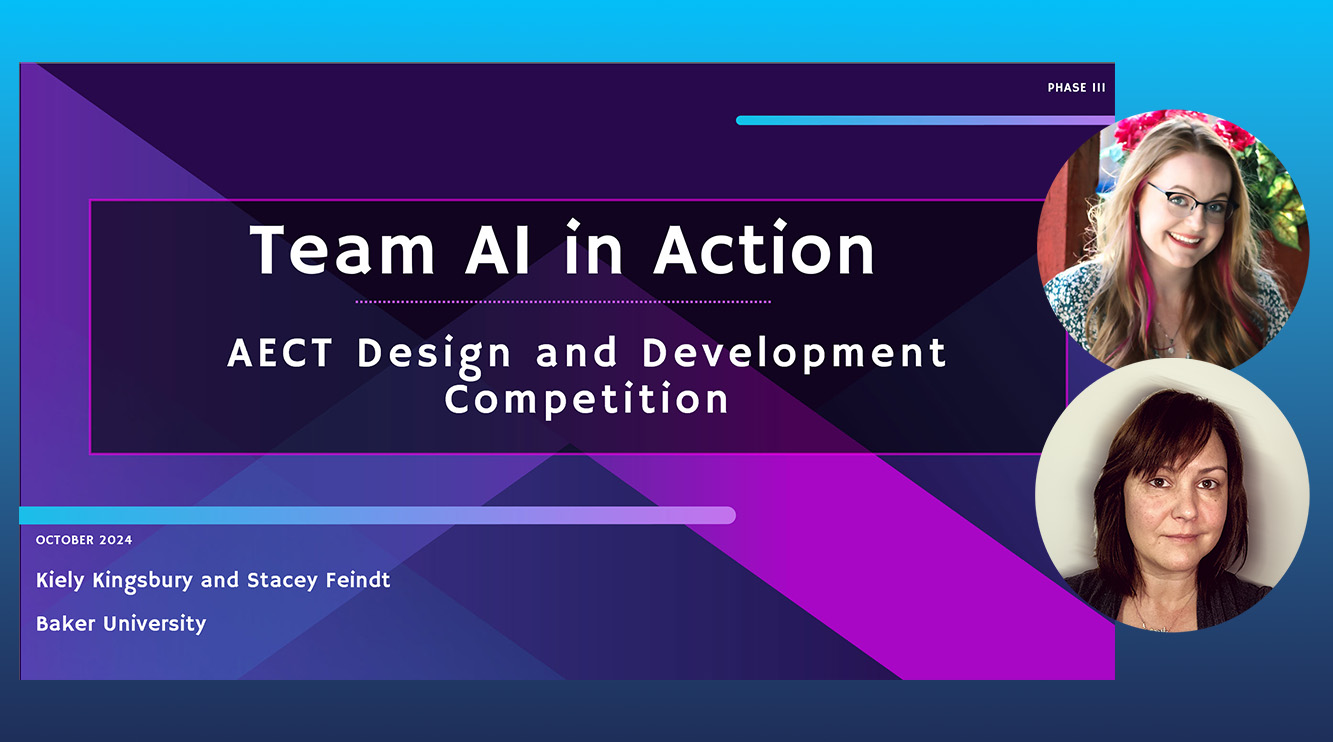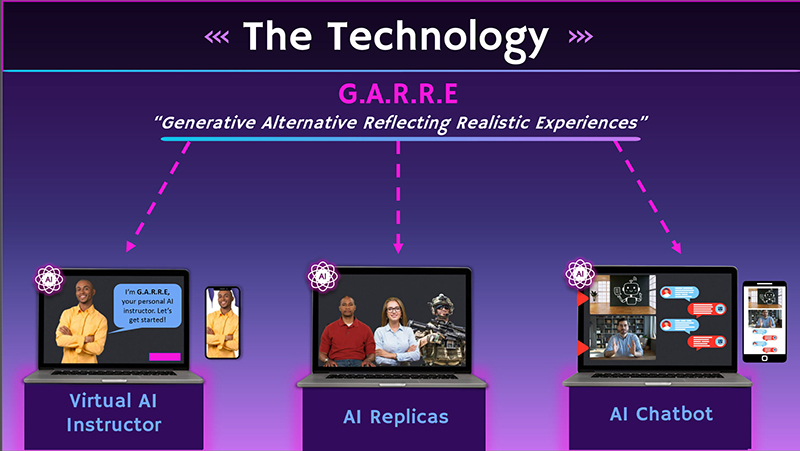Nov 25, 2024 | Alumni
Grad students reach finals of prestigious international instructional design competition

Stacey Feindt, ’24 MS-IDPT, and Kiely Kingsbury, ’24 MS-IDPT, readily admit they aren’t experts on artificial intelligence—commonly known as AI. What they do know a lot about is instructional design, having just completed Baker University’s two-year master’s program in instructional design and performance technology. It’s that knowledge and those skills the two used to reach the final stage of a renowned international design competition.
Feindt and Kingsbury recently were one of just three pairs of college graduate- and professional-school students to reach the final round of judging at the NATO-ACT/AECT Design and Development competition, which was held virtually this fall. Despite being the only team of the three not composed of doctoral students, Feindt and Kingsbury competed neck and neck against teams from Florida State University and the University of Oklahoma in the competition, normally held as part of the annual convention of the Association for Educational Communications and Technology (AECT).
The problem statement presented by the North Atlantic Trade Organization’s Allied Command Transformation (NATO-ACT) this year dealt with leveraging AI technology in a novel way to improve NATO’s workforce training efforts. Kingsbury and Feindt worked through three stages of the competition—a 1,500-word overview of a solution to the problem statement, a 5,000-word deep dive into the solution, and a final business pitch presentation—earning their top three finish.
The Assignment

“NATO wanted us to design a workforce training solution that utilizes AI technology in a new way,” said Feindt, a Virginia native who along with Kingsbury graduated from the online MS-IDPT program at Baker last May. She works as an instructional designer and trainer for the United States Senate.
“In addition to researching and proposing an innovative use of AI technology, we also had to create a project development road map for our proposed AI-powered training solution,” Feindt said. “We had to provide an instructional design that was backed by learning science principles and research. We also had to select and customize a design model that would support NATO’s development and implementation of our solution.”
In addition to being full-time master’s students, Feindt and Kingsbury both already worked full-time jobs, so for 11 months they got together virtually on Zoom or Teams during evenings, late at night, and on weekends putting their presentation together. Although they were classmates in the MS-IDPT program and teammates in the competition—and self-described great friends—the pair has met in person just once, and that was at commencement.
Kingsbury even took a new job and moved from the Kansas City area to Denver during the competition.

“I actually graduated, moved, and got engaged within a month and a half, all while doing this project,” said Kingsbury, who is an instructional designer for EchoStar in Denver. Feindt asked Kingsbury to be her partner for the competition because she knew Kingsbury was a go-getter who demonstrated something important in a partner—the ability to provide honest, direct, and quality feedback on ideas. Turns out Kingsbury felt the same about Feindt.
“I consider myself to be very curious and inquisitive,” Kingsbury said. “I’m always trying to get a better understanding of our learner’s perspective and context. Stacey is equally organized and dedicated. She has a great background, and we each took on an equal share in this project.”
It added up to a formidable Baker team that continued what is becoming a tradition for the university and its MS-IDPT program.
“I couldn’t be more proud of what Stacey and Kiely achieved,” said Dr. Wendy Gentry, assistant professor and program coordinator for Baker’s MS-IDPT program. “Having worked with Stacey and Kiely, I saw firsthand their incredible drive and creativity. They brought fresh perspectives to every project and demonstrated an exceptional ability to turn complex ideas into innovative solutions. Making it to the finals of this prestigious international competition, competing against doctoral students, no less, is remarkable.”
It’s the second time in the last three years that a pair of Baker MS-IDPT students has made the final of the competition. In 2022, Deb Marszalek, ’22 MS-IDPT, and Allyson Sass, ’13, ’22 MS-IDPT, won the competition, beating teams from Purdue and Brigham Young.
“Having our students reach the finals every time they’ve entered this competition speaks directly to the strength of our program,” Gentry said. “Our faculty bring real-world experience to the classroom, and our collaborative learning environment helps our students excel in competitions like this. Drs. Linda Wiley’s and Tracy Russo’s incorporation of this competition into their courses exemplifies this approach. Our students can compete with the best, and Stacey and Kiely have proven that once again.”
The Presentation
In a nutshell, what Kingsbury and Feindt came up with for NATO-ACT was an AI-powered e-learning training system that uses three AI technologies to support metacognitive growth and learning. The training system, GARRE—generative alternative reflecting realistic experiences—is in the conceptual design phase and has these components:
- A virtual AI instructor, highly skilled in supporting and assessing metacognitive skill development
- AI replicas of peer learners to make shared metacognition possible in a virtual learning environment
- A generative AI replication tool that creates replicas of peer learners through conversation with the chosen learners

In other words, it takes the AI concept known more commonly as “deep fakes” and takes that concept a step further to enhance the learning experience.
Even though the competition is over, the teammates continue to study their proposed training solution. “We’ll find out if AI learning can be just as effective as real learning,” Kingsbury said. “What I’m looking forward to most is researching the concept to see if it’s possible and effective.”
The Reward
For stage two of the competition, each team was given a mentor to help guide them through the process. Kingsbury and Feindt’s mentor was Larisa Olesova, PhD, a faculty member at the University of Florida and a leader in AI research. Olesova was so impressed with the GARRE system the Baker team devised, she approached them about applying for grants so they can continue their research and develop a prototype of their AI solution for possible future use in classroom learning.
“Dr. Olesova and her team are submitting grant applications,” Feindt said. “We should know at the end of December. Then, a second, larger grant opens [for applications] in January.”
Kingsbury said, “The plan is, we would serve in a consultant capacity for the University of Florida’s work. They want to do an exploratory study to uncover student perceptions of AI peer replicas for learning. Assuming that goes well, we’ll keep applying for more grants.”
Regardless of how it all turns out, both Feindt and Kingsbury said they couldn’t have had better preparation for this journey than the education they received at Baker.
“The MS-IDPT program at Baker is amazing,” Feindt said. “I’ve grown so much in two short years. We had a small cohort—there were four of us—and got individual attention and instruction. We had structured assignments to get us started in participating in this contest. It gave us a foundation to push forward from.”
Kingsbury added, “[The MS-IDPT program] prepared me for my job today. It’s rare today to find a job where you use 100 percent of your education, but I was able to find that.
